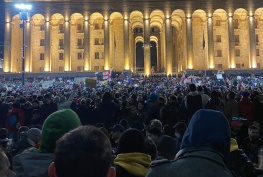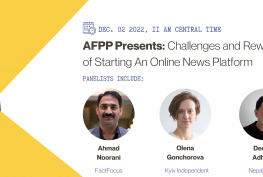By Sherif Tarek, LA Times reporter
The introduction of a system for mass surveillance of social media in Egypt has triggered fresh accusations that authorities seek to suppress freedoms, although Interior Ministry officials insist it is primarily designed to fight terrorism.
The new social media monitoring policy, which police representatives say will be similar to surveillance conducted in the U.S. and other European countries, is expected to be carried out in Egypt soon, with security personnel receiving training to implement it.
Egypt’s Interior Minister Mohammed Ibrahim, center, leaves a news conference in Cairo in May. (Amr Nabil / Associated Press)
Egypt was hit by a cluster of terrorist attacks and bombings shortly after the ouster of Islamist President Mohamed Morsi by the military last July, following nationwide protests against his rule. Social media, police officials say, have been used to plan and instigate violence and terrorism, and thus must be scrutinized.
“The new system enables security apparatuses at the ministry to observe dangers” exposed by social media, Interior Minister Mohamed Ibrahim was quoted as saying by state news agency MENA last week. He explained that the system will search for certain terms that would indicate planning of illegal activities.
Instructions on making explosive devices have been widely circulated on social media, said Egypt’s Deputy Interior Minister for Media Affairs Abdel-Fattah Osman. “We will put the word ‘explosives’ and wherever it appears on Facebook will be under our eyes,” he said in a TV interview.
Yet Osman downplayed fear that the new policy would violate users’ privacy. He stressed that communication surveillance is common worldwide.
Ibrahim said the monitoring tool will also measure public opinion, and insisted that it “has nothing to do with limiting freedoms.”
The Egyptian authorities should not replicate illegal programs that have been used by other countries to violate the right to privacy.
– Hassiba Hadj Sahraoui, Middle East and North Africa Deputy Director for Amnesty International
Their words, however, hardly reassured bloggers and other users of social media, whose concerns over freedom of expression had been fueled by reports about the surveillance system regulations manual, drafted by the Interior Ministry.
Among the “destructive thoughts” that the new system will combat are “tendentious rumors,” insults, harsh sarcasm, calls for “defying communal norms” and claiming that miracles happen, according to the manual. A report about the manual was first published by the newspaper Al-Watan.
The monitoring policy will target social media including Facebook, Twitter and YouTube, and possibly cellphone applications such as WhatsApp, Viber and Instagram.
An Arabic hashtag, “we are being watched,” trended on Twitter in Egypt as users mocked and criticized the surveillance plan. One independent Egyptian blogger, whose Twitter name is Zeinobia and who has one of the largest Twitter followings in Egypt, said she feels threatened.
“Terms like ‘bad intention’ in the manual or ‘non-constructive criticism’ that Interior Ministry representatives mentioned on TV several times make me feel it is more than a counter-terrorism measure,” she said in an interview.
“What is the non-constructive criticism they want to fight? Would exposing human rights violations or criticizing the president be considered non-constructive criticism?” she added. “Not to mention that they will also track calls for protests and strikes.”
Social media were key in instigating protests that eventually toppled former President Hosni Mubarak in 2011, and have been used to organize demonstrations in Egypt since.
The interim government that recently handed over power to new President Abdel Fattah Sisi sought to deter demonstrations through a new law requiring protesters to get authorization from the police before staging a protest. Many were sentenced to jail for breaking that law.
Although some Egyptians welcomed the law, hoping it would bring calm to the streets, many in the pro-democracy camp saw it as an oppressive measure. The new mass surveillance system caused another opinion split.
Veteran Egyptian journalist and TV presenter Ibrahim Eissa, one of the advocates of social media surveillance, pointed to Turkish Prime Minister Recep Tayyip Erdogan’s decision to ban Twitter and YouTube as a more draconian measure. Both sites were ultimately unblocked in Turkey on court orders.
Amnesty International condemned Egypt’s social media surveillance plan. “The Egyptian authorities should not replicate illegal programs that have been used by other countries to violate the right to privacy,” said Hassiba Hadj Sahraoui, Middle East and North Africa Deputy Director for the London-based organization.
Tarek is a special correspondent.





